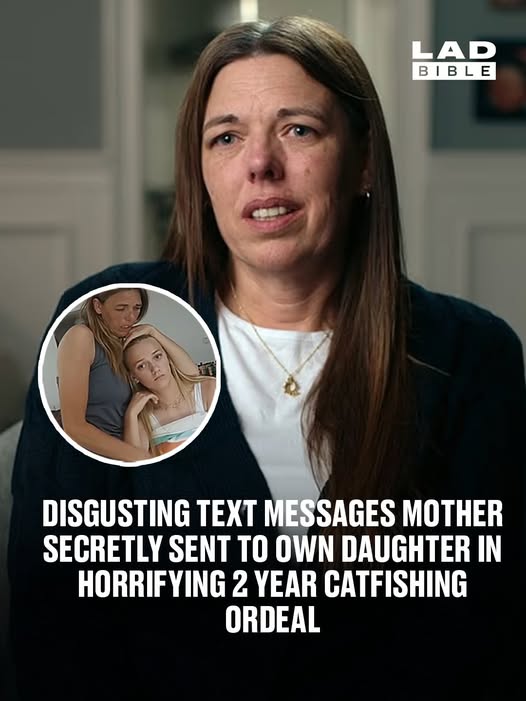In the quiet town of Beal City, Michigan, a disturbing case unfolded that would become the focus of Netflix’s documentary Unknown Number: The High School Catfish. The film chronicles how a teenage girl, Lauryn Licari, and her boyfriend, Owen McKenny, were subjected to an escalating torrent of abusive and anonymous messages only to discover the perpetrator was someone unimaginable: Lauryn’s own mother.
The Unrelenting Harassment
The nightmare began in late 2020, when Lauryn and Owen—then just 12 years old—started receiving cruel messages from an unknown sender. The texts accused them of splitting up, declared the sender was the object of Owen’s affection, and included lewd, manipulative taunts. One message chillingly declared: “He will be with me while your lonely ugly a* is alone.” Over the ensuing 22 months, the harassment grew more graphic and personal, including threats and instructions for suicide such as “Kill yourself now, bh.”**

Community Investigation Gone Awry
The couple, confused and bedraggled by the deluge of harassment, turned to friends and authorities for help. Suspicion initially fell on their classmates—such as Khloe Wilson—and even Owen’s cousin, but none were responsible. As the abuse persisted, the emotional toll intensified. Unable to find answers locally, the case escalated, eventually involving the FBI.
The Shocking Culprit: A Mother’s Betrayal
The FBI’s investigation revealed that the abusive texts had been sent using spoofing technology. App and ISP records eventually traced the activity back to Kendra Licari—the victims’ mother. The revelation stunned the tight-knit town, and police arrested Kendra at her home in December 2022, as captured in the documentary’s dramatic bodycam footage.
A Twisted Motive—Munchausen by Proxy in the Digital Age?
Kendra later pleaded guilty to stalking minors and was sentenced to 19 months in prison, being released on parole in August 2024. The course of the documentary explores her motives: unresolved trauma, fear of letting her daughter grow up, and a distorted desire to keep her close. Some officials likened her behavior to a digital variant of Munchausen by Proxy—creating harm to maintain control.
The Daughter’s Journey: Healing and Boundary Setting
Lauryn, now 18, has navigated a fraught emotional path. Initially hopeful that her mother would return to her life, she later became more cautious and measured following Kendra’s release. She is now closer to her father and seeks a relationship with Kendra grounded in safety and trust—and only if Kendra first addresses her own mental health.

A Larger Warning: The Stark Reality of Cyberbullying
Beyond this case’s emotional fallout, the documentary serves as a harrowing reminder of the potential damage of cyberbullying—especially when it comes from within the family. Director Skye Borgman emphasizes how common digital abuse is for young people today, urging parents and teens to have open conversations and remain vigilant to warning signs.
Conclusion
The case of Kendra Licari exposes the chilling extremes of digital abuse, where a mother crossed unthinkable boundaries to control her daughter’s life. Netflix’s Unknown Number: The High School Catfish not only documents the psychological toll of prolonged harassment but also highlights the urgent need for awareness around cyberbullying, trust, and mental health. Lauryn’s path forward, marked by resilience and careful boundary-setting, serves as both a cautionary tale and a message of hope that healing is possible—even after the deepest betrayal.

















